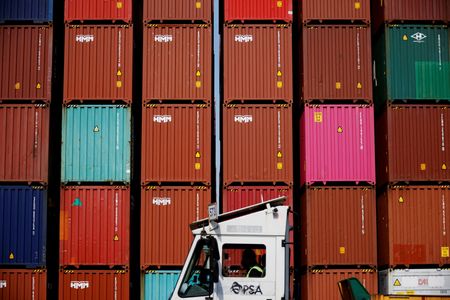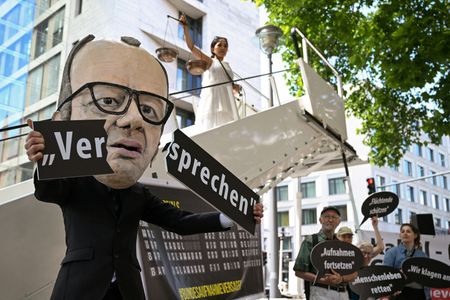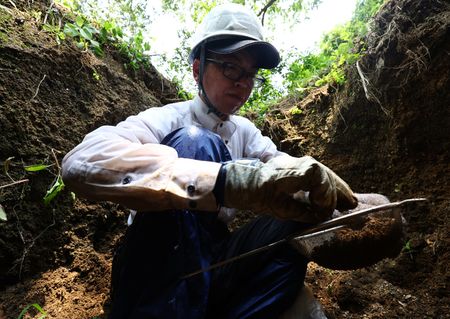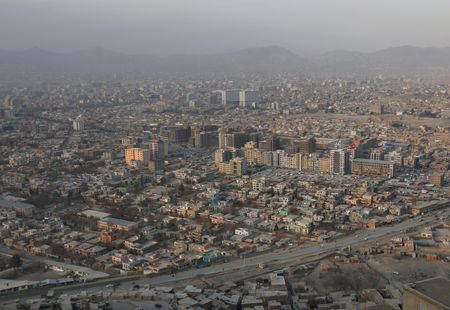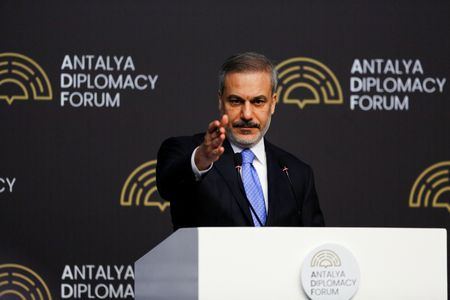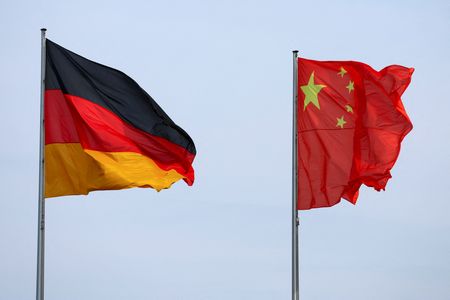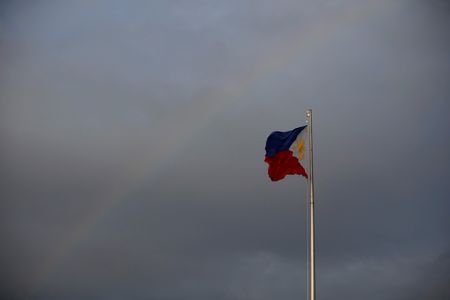By Jack Kim and Ju-min Park
SEOUL (Reuters) -South Korea said it planned to intensify trade talks with the United States and considered U.S. President Donald Trump’s plan for a 25% tariff from August 1 as effectively extending a grace period on implementing the duties.
Trump informed Seoul and more than a dozen other trading partners of sharply higher tariffs in a wave of letters on Monday, posing the first major test for President Lee Jae Myung since he came into office barely a month ago.
Lee’s office said U.S. Secretary of State Marco Rubio had indicated the new deadline, which extends a previous July 9 date, meant there was still time to reach an agreement.
South Korea’s Industry Ministry said Seoul would “step up negotiations during the remaining period to reach a mutually beneficial result.”
“We also plan to use it as an opportunity to improve domestic systems and regulations to resolve the trade deficit that is a major interest of the United States,” it said in a statement.
South Korea earned a record $55.6 billion trade surplus with the U.S. in 2024, up 25% from 2023, led by rising car exports, according to Korea Customs Service data.
Trump said in the letter to Lee that “our relationship has been, unfortunately, far from reciprocal,” inviting South Korea to present a proposal to open “your heretofore closed trading markets” and eliminate tariff and non-tariff barriers.
Washington would impose a 25% tariff on all South Korean products but an exemption would be granted to goods manufactured within the United States, he said.
South Korea’s effective tariff rates stand at near-zero under a free trade agreement first signed in 2007 then revised in 2018 under Trump’s first term, according to economists.
‘DON’T BE A PUSHOVER’
South Korea’s top trade envoy Yeo Han-koo met U.S. Commerce Secretary Howard Lutnick on Monday after Trump’s letter became public to continue high-level talks, the industry ministry said.
Yeo told Lutnick that exemptions or reductions in Trump’s 25% auto and 50% steel tariffs must be included in any deal for South Korea to be an effective partner in rebuilding U.S. manufacturing, the ministry said.
A senior South Korean trade official said last week the U.S. showed a willingness to consider exemptions on sectoral tariffs, as it had when agreeing a deal with Britain, if South Korea proposed a clear offer to reduce trade deficits.
South Korea’s public had already factored in Trump’s style, allowing Lee some latitude to work out a deal as long as it did not put the country in a worse-off situation than Japan, Taiwan or China, political analyst Park Sang-byoung said.
“Play good defence but don’t be a pushover, that’s what South Koreans want from President Lee.”
Morgan Stanley economist Kathleen Oh said greater clarity on Trump’s push for concessions on non-tariff barriers and industrial cooperation should give Seoul a better chance to strike a deal.
The benchmark KOSPI stock index rose as much as 1.8% on optimism there was time for South Korea to reach a deal.
National Security Advisor Wi Sung-lac met Rubio on Monday and agreed that a summit meeting between Lee and Trump would help advance cooperation, Lee’s office said.”There is still time until tariffs are implemented on August 1, so he hopes the two countries can communicate closely to reach an agreement before that,” the presidential office cited Rubio as saying.
(Reporting by Jack Kim, Ju-min Park, Jihoon Lee, Joyce Lee; Editing by Chris Reese, Deepa Babington, Ed Davies, Shri Navaratnam and Saad Sayeed)

